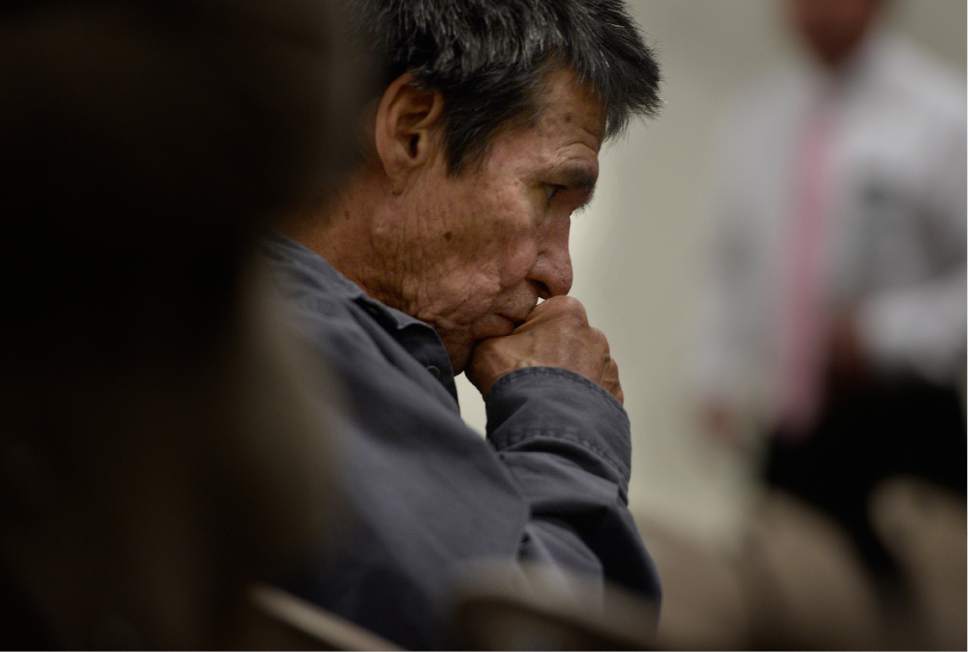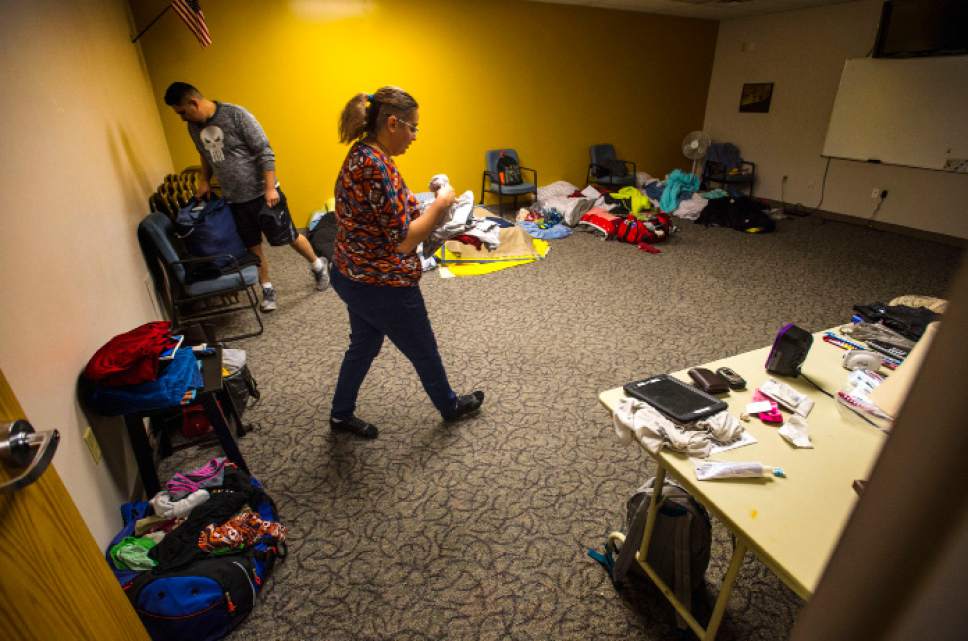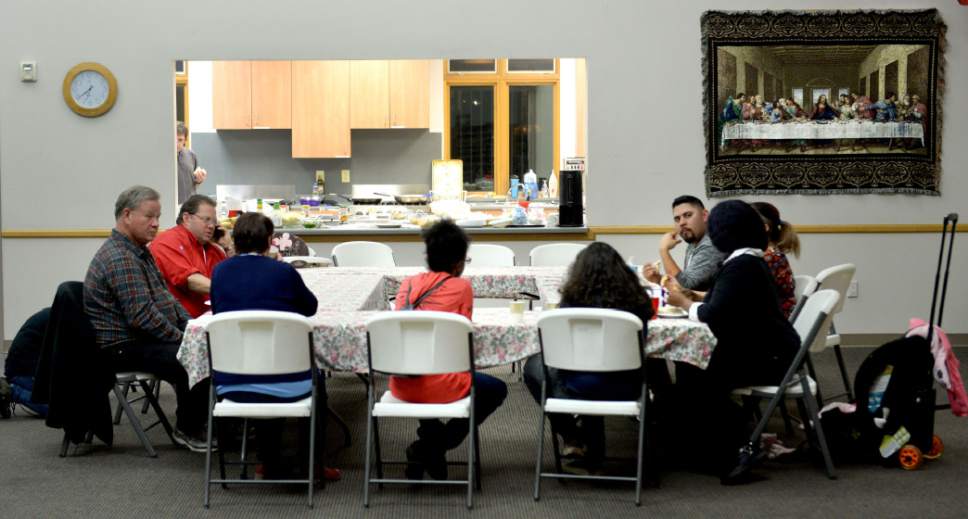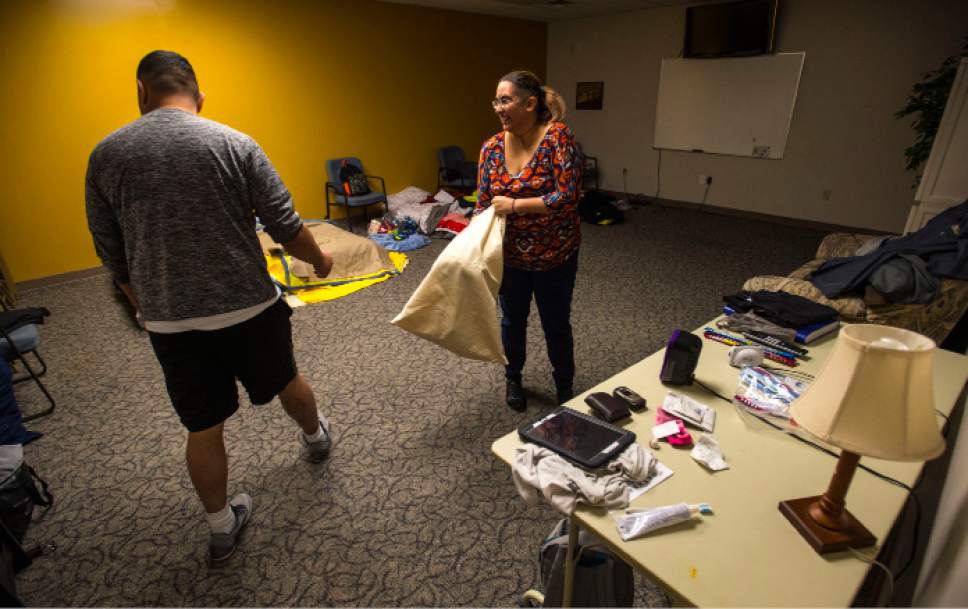This is an archived article that was published on sltrib.com in 2017, and information in the article may be outdated. It is provided only for personal research purposes and may not be reprinted.
Faith-based ministries and missions are at the forefront when it comes to not only providing the homeless with shelter beds, but also effectively dealing with the root causes of homelessness, a Baylor University study shows.
The recently released report was compiled in 2016 with data from the federal Department of Housing and Urban Development and local agencies in 11 "sample cities" — Baltimore; Jacksonville, Fla.; Atlanta; Indianapolis; Omaha, Neb.; Houston; Denver; Phoenix; San Diego; Portland, Ore.; and Seattle.
Researchers from Baylor's Institute for Studies of Religion found that faith-based organizations accounted for 58 percent of emergency shelter beds in those cities, along with accompanying educational, health care, job training and addiction-recovery services.
The authors concluded that these organizations save taxpayers $9.42 compared to each dollar invested in homeless "safety net" programs by government agencies.
Researchers stated that in the areas of housing and job-readiness programs, faith-based groups are especially "at the forefront of program innovation and organizational transformation for improving positive outcomes for the homeless individuals and families."
Study co-authors Byron Johnson, founding director of the institute, and William Wubbenhorst, a nonresident fellow and research collaborator, said these successes in homeless programming stemmed in part from differences in perspective — and faith-based groups' emphasis on developing relationships with clients.
"What government agencies and public policymakers see as the cause of homelessness, namely, the lack of housing, many [faith-based organizations] see as a symptom of a deeper problem," they wrote. "As one [such] service provider told us: "People don't become homeless when they run out of money, at least not right away. They become homeless when they run out of relationships.' "
Read more about how Utah churches help the homeless here.
Bob Mims









